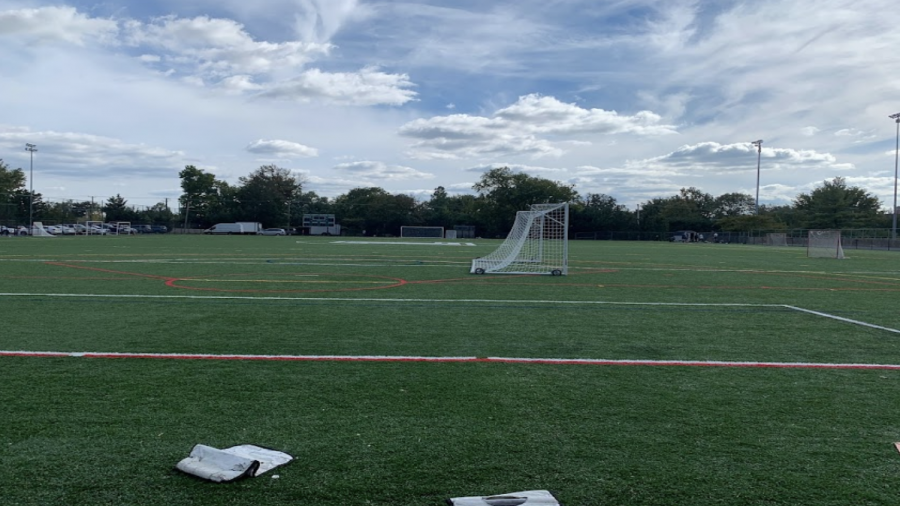The suicide of Stanford women’s soccer goalie, Katie Meyer, who ended her life earlier this year, has increased the discussion of student-athlete mental health across the nation. Many feel that the National Collegiate Athletic Association and universities across the country have been avoiding the issue at hand and pushing the difficult questions aside.
Many student-athletes are currently petitioning to hold the NCAA accountable for not taking care of athletes. Many athletes from Loyola, including those interviewed, feel that it is a step in the right direction and that the NCAA needs to show more concern for the safety of college athletes. They agree with many of the petitions being brought forward and have signed a few themselves. In a Change.org petition started by Lindsey Kilpatrick, which now has 36,000 signatures, she petitions to hold the NCAA responsible for not providing enough services for student-athletes struggling with mental health. Kilpatrick is a former Umass-Lowell field hockey player, who struggled throughout her collegiate career with mental health and decided to end her career early to focus on her health.
In the Change petition, Kilpatrick said, “The culture of collegiate athletics promotes student-athletes to suffer in silence. The NCAA fosters an environment that prioritizes athletic and academic achievement above all else, and many times that is at the expense of our physical and mental health.”
Dr. Sappington is the coordinator of mental health services at Loyola and works directly with the student-athletes here at the university. Sappington disclosed that the staff at the Counseling Center works closely with the Loyola athletic department to not only support the individual mental health of its athletes but also to build “mentally healthy cultures” within athletics.
Sappington said, “In light of growing national and international awareness around athlete mental health, including several student-athlete suicides in recent years, the Loyola athletic department has worked closely with the Counseling Center to increase visibility, awareness, and accessibility of mental health services to student-athletes.”
Sappington also talked about Loyola student-athletes having several Counseling Center services and options, including individual and group therapy, single-session “Let’s Talk” appointments, workshops, self-help resources, and crisis/emergency services. He added that the Counseling Center also provides outreach, and workshops to the Loyola varsity teams and coaches throughout the academic year and during the summer.
Student-athletes from both the men’s basketball and women’s soccer teams at Loyola University Maryland feel that their time-consuming schedules can cause a lot of stress and that providing mental health resources is a necessity. From long practices to traveling to different states for games and having to maintain excellence in the classroom, the everyday life of a student-athlete is an incredibly challenging task. For most, being an athlete is a full-time job and they are required to work a 9-5.
Daraun Gray is a senior on the Loyola men’s basketball team from Clarksburg, Maryland. He has been playing basketball since middle school, where he attended The Landon School in Bethesda, Maryland. Gray is a guard on the men’s team at Loyola. Gray practices around 20 hours a week, with an extensive travel schedule. Gray also feels that being a D1 athlete is a time sacrifice.
“In season having to juggle the long trips, long practices, and all the schoolwork is the hardest part,” Gray said. “Staying up with work can get hard at times, but we have the right people helping us to make sure we’re up to date and the professors are very understanding as well.”
Gray also said, “My passion for the sport of basketball is one of the main reasons he continues to push through the rough times and requirements. My teammates and coaches are always there for moral support.”
Another Loyola athlete who can attest to the challenges of being a D1 athlete is MK Barnes, a senior on Loyola’s women’s soccer team from Fredrick, Maryland. Before starting her athletic career at Loyola, Barnes was captain of her Baltimore Armour Development Academy U18/19 team. Barnes is currently a defender on Loyola’s 27-women roster. Barnes and her teammates practice around 20 hours a week, not including time for travel and games.
“Juggling practice, school, and your social life is tiring,” Barnes said. “For a short time, the busy lifestyle is fun. However, after about a month, you’re exhausted.” These expectations can become very intense and if one experiences failure, this could push them over the edge or cause more damage to their mental health. Many professional athletes such as tennis star Naomi Osaka and hall of fame swimmer Michael Phelps, have been huge advocates of prioritizing the mental health of athletes and sharing their stories with the world.
Universities such as Loyola have made significant strides in providing proper resources for their students and making sure that there is a structure student-athletes can lean on for support when experiencing troubles with their mental health.
Sappington said, “Loyola student-athletes use the full range of Counseling Center services, including individual and group therapy, single session Let’s Talk appointments, workshops, self-help resources, and crisis/emergency services. The Counseling Center staff also provides consultation services, outreach, and workshops to the Loyola varsity teams and coaches throughout the academic year and during the summer.” Loyola athletes such as MK Barnes, feel the university has been evolving from previous years where mental health wasn’t taken as seriously.
Barnes said, “I do not think the school has emphasized it enough in the past. However, with recent incidents regarding mental in the sports world, I think Loyola is trying a little more.” Loyola putting in more effort was a common theme heard along the athletes that were interviewed, as well as staff in the Counseling Center.
Featured Image Courtesy of Hilton Carroll







































































































